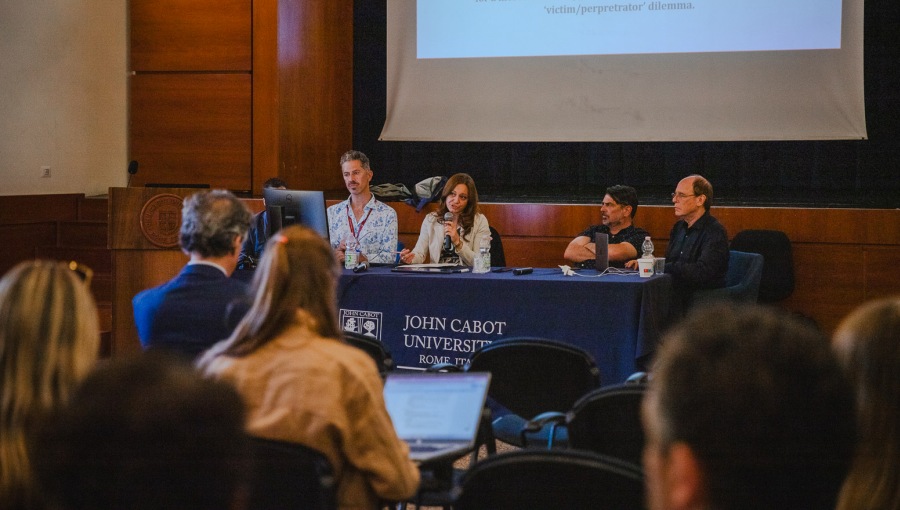JCU Hosts Discussion on Child Involvement in Military Groups
On 5 June 2024, the JCU Department of Political Science and International Affairs organized a discussion on “Child Involvement in Military Groups: International Perspectives and Unresolved Issues.” The three speakers, Professor Mark Drumbl (Washington and Lee University), Professor Ibrahim Al-Marashi (California State University), and Professor Silvia Scarpa (John Cabot University), explored this multifaceted topic from different angles. The panel was moderated by Professor Bruce Cronin (The City University of New York).

Professor Drumbl opened the panel discussion by emphasizing how we often lack a complete understanding of the experiences of children involved in collective violence. For this reason, he considered the case of child informers and used three historical examples to prove his hypothesis. Professor Drumbl talked about two child informers in Communist Czechoslovakia, and mentioned the story of Pavlik Morozov, a Russian communist informer who in 1930 denounced his father to the Soviet authorities.
Professor Al-Marashi considered the use of social media to depict the stories of child involvement in military groups in the Middle East and, finally, Professor Scarpa analyzed the 2021 judgment of the European Court of Human Rights (E.Ct.H.R.) in V.C.L. and C.N. v. United Kingdom and the 2021 and 2022 trial and appeals judgment of the International Criminal Court (I.C.C.) in The Prosecutor v. Dominic Ongwen. Professor Scarpa attempted to untangle complexities in children and juveniles’ fights, by sorting out the definitional imperfection of existing categories (i.e. child trafficking victim versus child soldier), and by identifying the legal challenges in binaries such as the ones of ‘victim/perpetrator’ and ‘compulsion/consent.’





